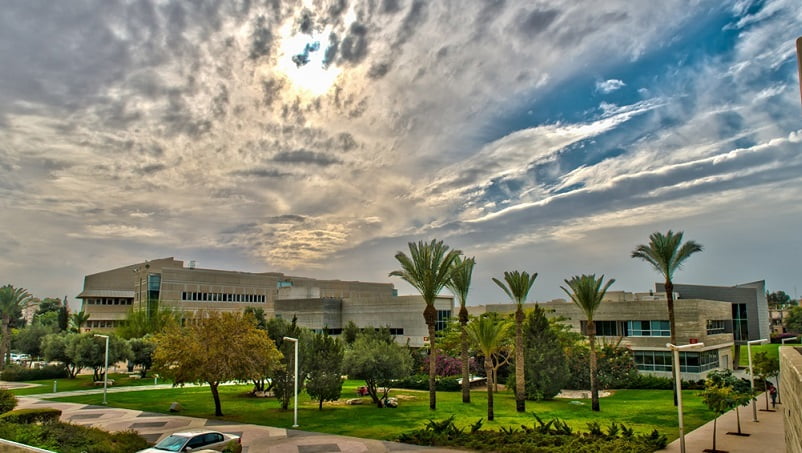Aviation is a notoriously environmentally unfriendly mode of transport, which, according to the European Union, is responsible for 14 percent of greenhouse gasses (GHG) produced by the sector. In fact, the EU says that if global aviation were a country, it would be in the top 10 of GHG producers.
Israeli scientists, however, have now developed sustainable aviation fuel (SAF) that they say will revolutionize the industry and play a key role in countering climate change.
The CarboNGV startup is a joint venture between the researchers at the Blechner Center for Industrial Catalysis and Process Development at Ben-Gurion University of the Negev and the Ralco Group, which has invested more than $2 million in the venture as part of its vision for synthetic fuels. The name is a portmanteau of carbon and Negev, the desert in which Ben-Gurion University is located.

CarboNGV uses waste and other materials to produce the fuel via a proprietary method, says Shirley Sheffer Hoffman, Senior VP for Business Development – Climate Tech at BGN, Ben-Gurion University’s technology transfer company.
“The problem with current processes is that you get jet fuel, but you also get other materials that are just being thrown out there that are very non-environmentally friendly,” she tells NoCamels.
“This process is able to extract the SAF and [with] actually very good efficiency, and have the [pollutants] very contained in a very sustainable way,” she explains.
The company says its technology “embraces the diversity of waste streams [thereby] converting much more waste into greener products, while slashing carbon emissions.”
The SAF was developed by a team led by Prof. Moti Herskowitz, the director of the Blechner Center. Herkowitz is an expert in catalysts – materials that increase fuel efficiency and economy while also reducing GHG emissions – and Sheffer Hoffman says he has been working with fuel companies for more than two decades.
“I am confident that the advanced patent-backed technology developed at the Blechner Center combined with the excellent business platform provided by CarboNGV will yield a process to be implemented worldwide,” Hershkwitz said of the SAF.

The aviation industry has set itself the target of achieving net zero on carbon emissions, which make up the majority of GHGs, by 2050.
Sign up for our free weekly newsletter
SubscribeThe US in response decided to increase production of SAF to at least 3 billion gallons per year by 2030, according to the International Air Transport Association. To achieve this individual goal, the US is planning tax credits to cut the cost of SAF production and to provide funding for SAF producers.
The European Commission, meanwhile, has issued a mandate for aviation companies to begin blending SAF into their fuel at EU airports from 2025, beginning with a 2 percent blend next year and rising to 70 percent by 2050.
The first demonstration plant by CarboNGV is also expected to become operational in 2025, although Sheffer Hoffman says that it will take “at least a couple of years” for the SAF itself to reach the market.
“At CarboNGV, we believe the sky is not the limit,” said the company’s CEO Arie Sussely, who came to the joint venture from Ralco and who previously served for over 20 years at the Prime Minister’s Office.

“For me, CarboNGV is more than a business; it’s a national mission. After more than two decades of serving my country behind the scenes, I am proud to be at the forefront of this critical endeavor,” said Sussely.
”We are aiming to make Israel a leader in sustainable aviation solutions and turn it into a take-off nation, which is more important now than ever.”
It is not yet clear how much the SAF will cost, but Sheffer Hoffman acknowledges that it will have to at least be the same price as standard aviation fuel, if not cheaper, in order to be successful.
“The target is to be competitive,” she says.
Related posts

Editors’ & Readers’ Choice: 10 Favorite NoCamels Articles

Forward Facing: What Does The Future Hold For Israeli High-Tech?

Impact Innovation: Israeli Startups That Could Shape Our Future




Facebook comments